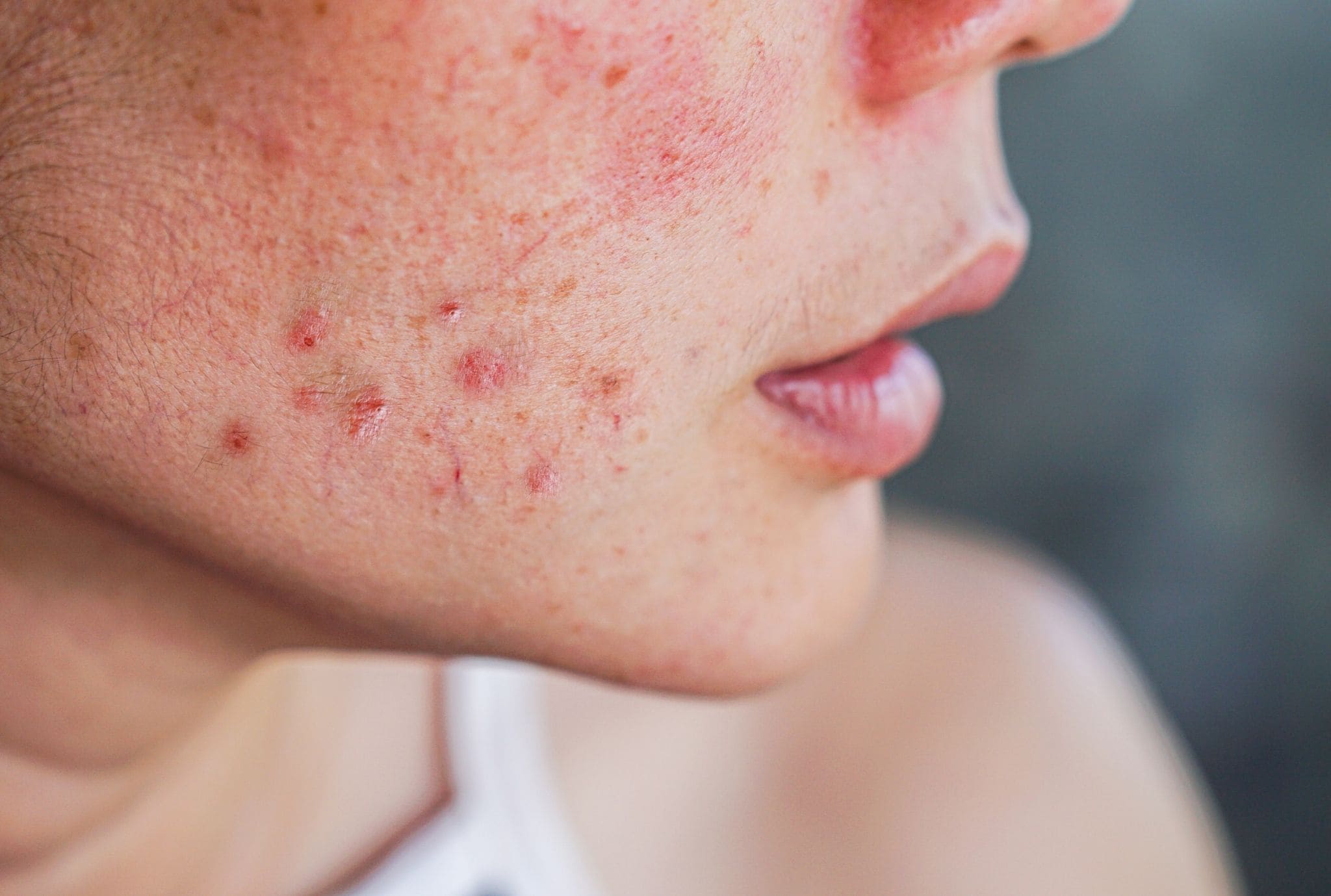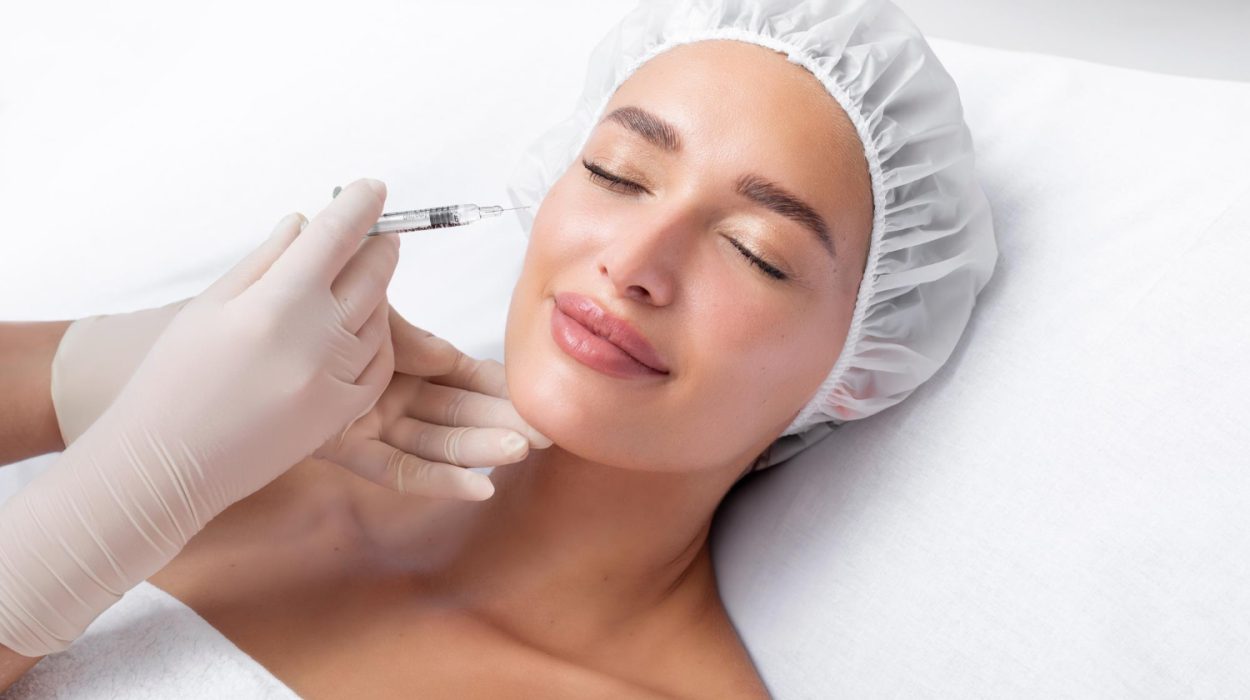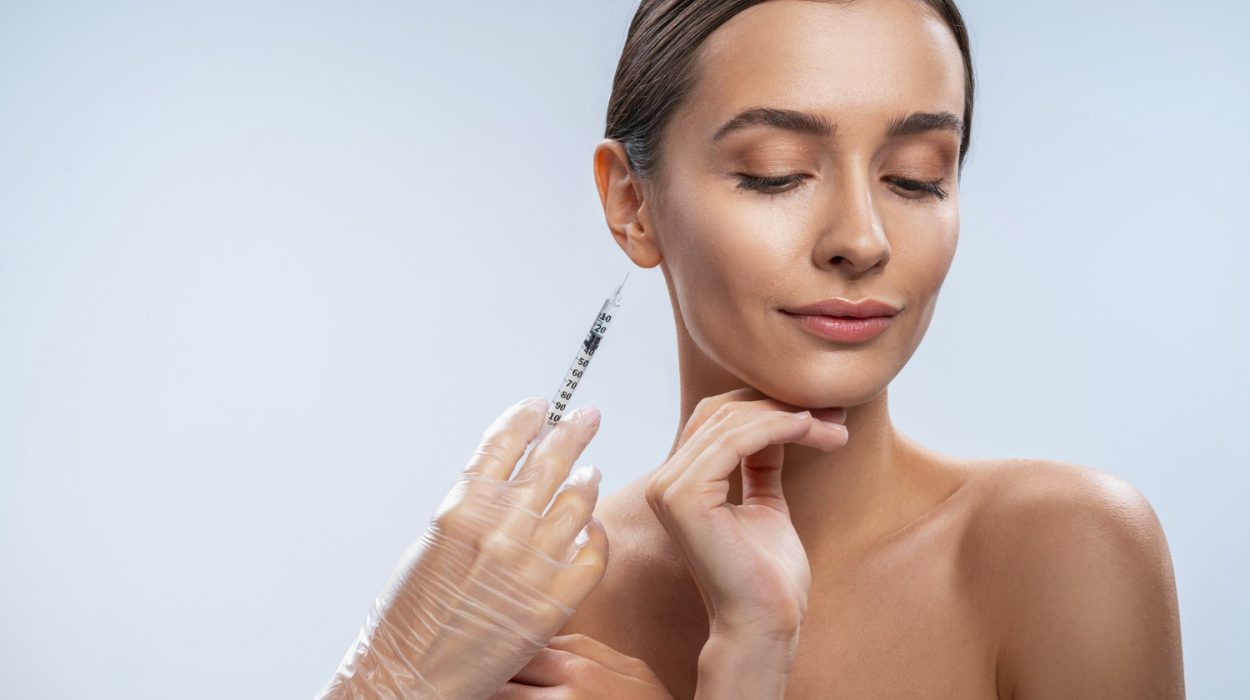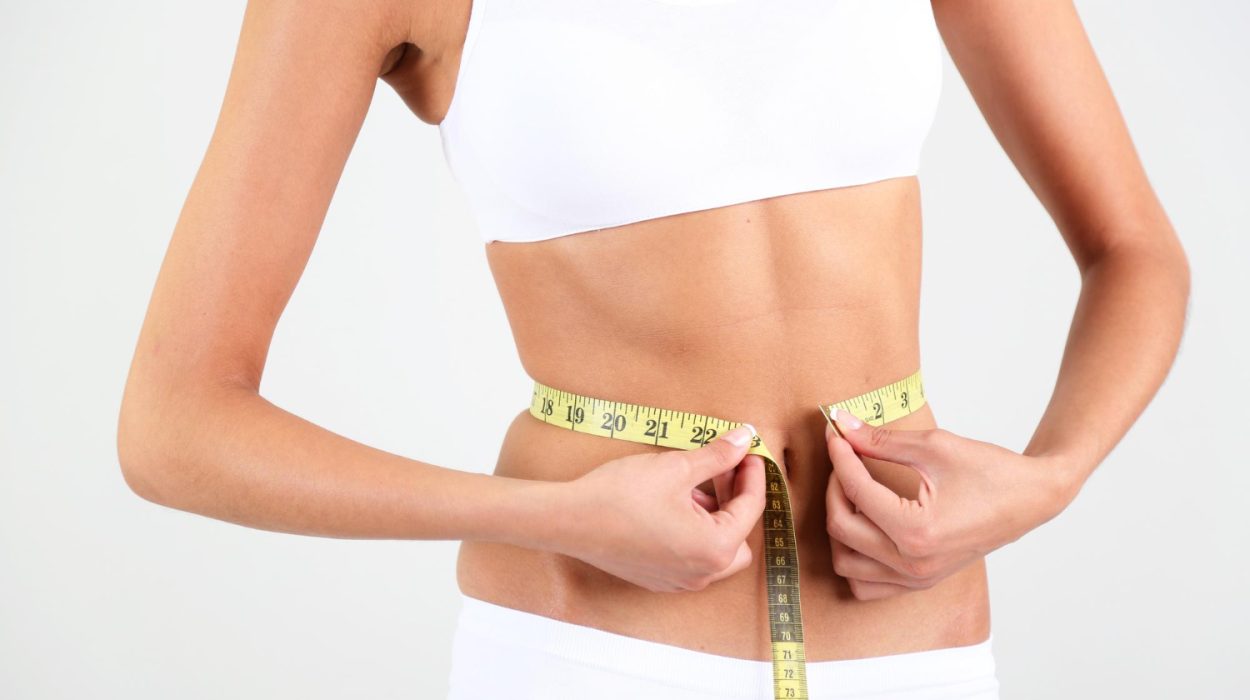Acne, or pimples, is a common skin condition that is more common among adolescents but can affect people of all ages. It is characterised by clogged pores and inflamed skin. Pores get clogged when bacteria, dead skin cells, and oil secreted by the skin fill up pores (tiny openings in the skin), causing inflammation.
Various factors can trigger acne, including hormonal changes, diet, stress, and genetics. In contrast, it might appear like a temporary yet recurrent issue in most people; untreated cases of acne may cause pigmentation, giving rise to scars.
Types of Acne and Acne Scars
Did you know acne is of different types? Here’s a look at them!
These are the most common types of acne. They heal smoothly and usually do not cause scars.
Papules and pustules are the two types of inflammatory acne. Papules are pink or reddish bumps that hurt when you touch them, whereas pustules are pus-filled lesions that are red at the base and white or yellow at the top. These forms of acne cause scarring.
This form of acne is characterised by cysts that lie deep within the skin. They are painful, filled with pus, and almost always cause a scar when healing.
This type of acne is characterised by solid lesions that are deep-seated in the skin and, therefore, more painful. They are larger than other types of acne and often heal with scarring.
There are different types of acne scars, such as:
- Ice Pick Scars: Narrow, deep pits resembling small holes.
- Boxcar Scars: Broad, rectangular depressions with sharp edges.
Rolling Scars: Undulated scars with a wave-like appearance.
These are raised scars caused by an overproduction of collagen during healing.
These scars appear as Dark spots or discolouration left behind after acne heals, often more prominent in darker skin tones.

Professional Treatments for Acne Scars
This is a minimally invasive procedure in which the doctor will apply a solution to your skin to remove the top or outer layers, revealing smoother, healthier skin underneath. Chemical peel treatment is effective for superficial scars and discolourations.
In this process, the dermatologist uses a special machine to remove the upper skin layer, reduce scars and correct uneven skin tone.
This is a standard cosmetic procedure in which the dermatologist uses small needles to create micro-injuries on the target areas of the skin to stimulate collagen production. This improves skin texture, reduces scars, and enhances elasticity, revealing younger-looking skin.
A laser device is pointed at the target area and damaged collagen under the skin. The heat generates, encourages, and stimulates more healthy collagen production, enabling the skin to replace it. Fractional lasers are excellent for getting rid of stubborn scars.
Dermal Fillers are effective against atrophic scars as they can temporarily plump the skin, making scars less noticeable.
Effective Skincare Routine for Acne Prevention
Following a skincare routine can reduce the incidence of acne and prevent scarring. A typical routine includes four steps: cleansing, exfoliation, moisturising, and sun protection. Let’s learn more about each step!
A consistent cleansing routine using gentle, non-comedogenic cleansers twice daily can prevent acne. It helps remove dirt, oil and bacteria from the pores. If you have oily or acne-prone skin, you should opt for a cleanser containing salicylic acid or benzoyl peroxide.
Exfoliation should be the next step in your skincare routine. Chemicals like alpha-hydroxy acids (AHAs) and beta-hydroxy acids (BHAs) can unclog pores and reduce acne. However, to prevent skin irritation, avoid exfoliating more than two to three times a week.
All types of skin, including oily skin, require hydration and must be moisturised. To maintain the natural skin barrier without clogging pores, you can opt for oil-free, lightweight moisturisers.
Your skincare is incomplete without sun protection. Sun exposure is known to worsen acne scars and also cause pigmentation. Always use a high-SPF sunscreen to protect your skin when heading outdoors.
Home Remedies to Treat Acne
In addition to medical treatments recommended by your dermatologist, you can try a few home remedies that may be effective for mild to moderate acne.
It is a natural antibacterial and anti-inflammatory substance that may reduce the appearance of acne and prevent breakouts
It is a natural antibacterial agent that fights acne-causing bacteria and reduces redness associated with the condition. A few studies have stated that tea tree oil may reduce acne incidence due to its antibacterial properties.
Honey is known to help heal wounds and soothe the skin. Its combination with cinnamon offers antibacterial and anti-inflammatory effects, which helps calm active acne breakouts.
It reduces discolouration and pigmentation associated with scars.
Over-the-Counter (OTC) Treatments for Acne
Besides medical treatments and home remedies, you can also choose to use over-the-counter (OTC) treatments for acne and acne scars. Some of the popular OTC products include:
- Retinoids
- Benzoyl peroxide
- Salicylic acid
- Lactic acid
- Alpha0hydroxy acid
Lifestyle Changes to Prevent Future Breakouts
If your acne breakouts are associated with lifestyle habits, you can opt to modify them.
- Eat a healthy, balanced diet that includes antioxidant-rich foods like fruits and vegetables. Minimise your consumption of sugar and processed foods that may trigger acne.
- Keep yourself hydrated
- Reduce stress
- Avoiding picking on your acne or squeezing your pimples as it can increase the risk of scarring and infection
How long does it take to see results from acne treatments?
The results of professional or in-clinic acne treatment depend on the treatment. While it may take 4 to 8 weeks to see the results from OTC products, professional treatments can show improvements within a few sessions. Ask your dermatologist about any queries you have regarding the duration of treatment, the number of sessions, and when the results will become more evident.
Can acne scars be removed permanently?
Some scars can be significantly improved with laser therapy and microneedling, but complete removal may not always be possible.
Are natural remedies effective for severe acne?
Natural remedies may reduce mild or moderate acne. However, we recommend consulting a dermatologist, but these are often insufficient for severe cases. For persistent or severe acne, consulting a dermatologist is recommended.
Achieving Clear, Healthy Skin
Acne and acne scars are widespread and often interfere with an individual’s life. A diligent skincare routine, lifestyle changes, and professional treatments for severe cases can lead to significant improvements.
If you’re struggling with acne or its aftermath, consult a dermatologist to create a personalised treatment plan tailored to your skin’s needs. Remember, achieving clear skin is a journey; patience and persistence are your best allies.
HORTMAN CLINICS NEWS
Related News
We are here for you. Always.
Everything we do is tailored to your needs, this is why we take our time to take care of you and answer all your questions.




